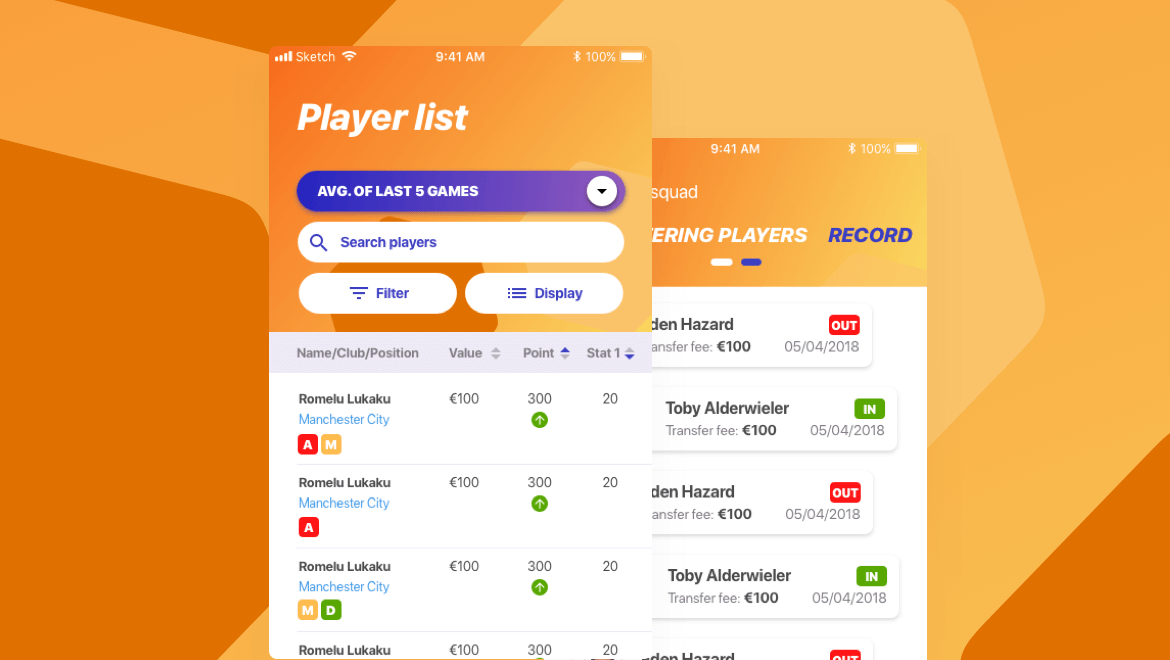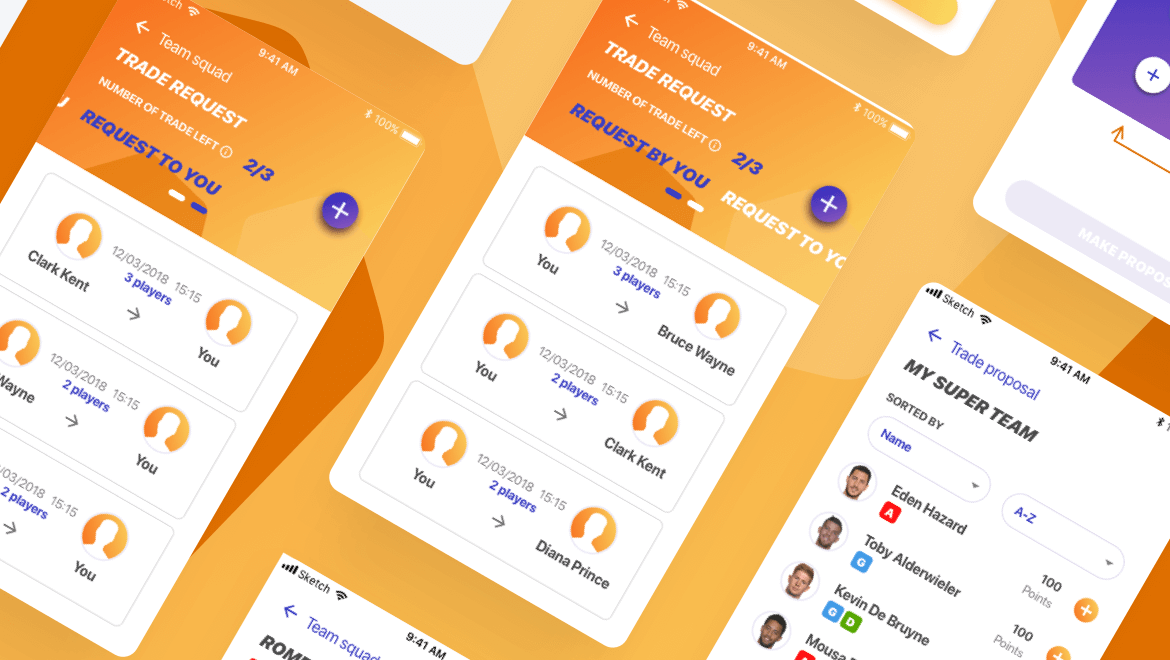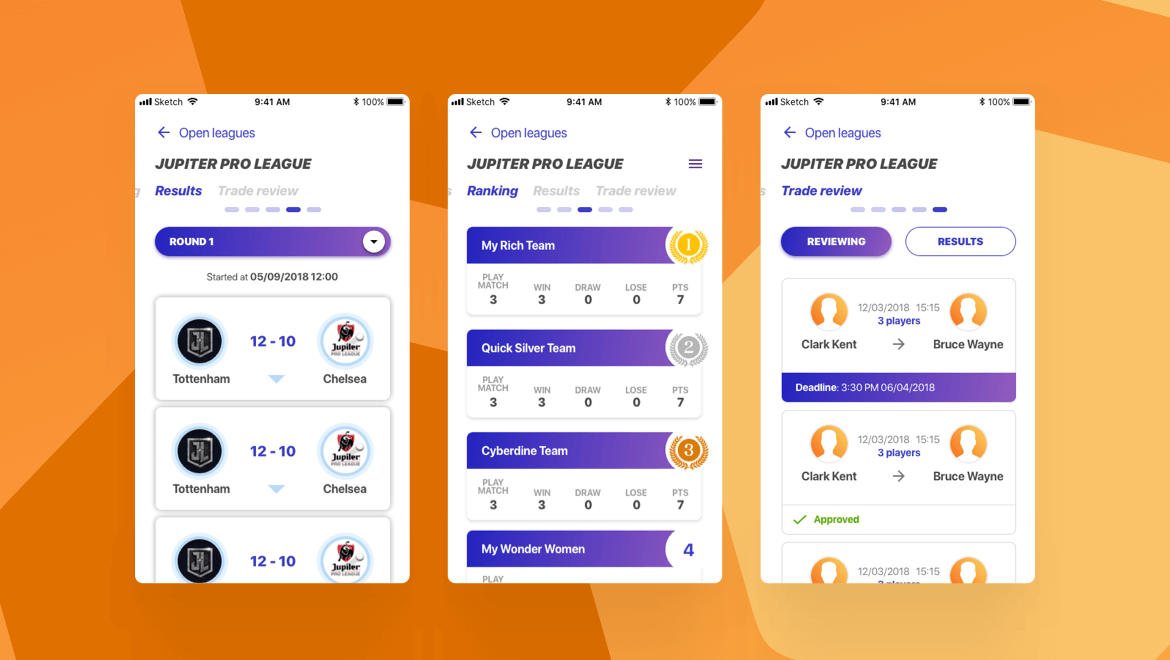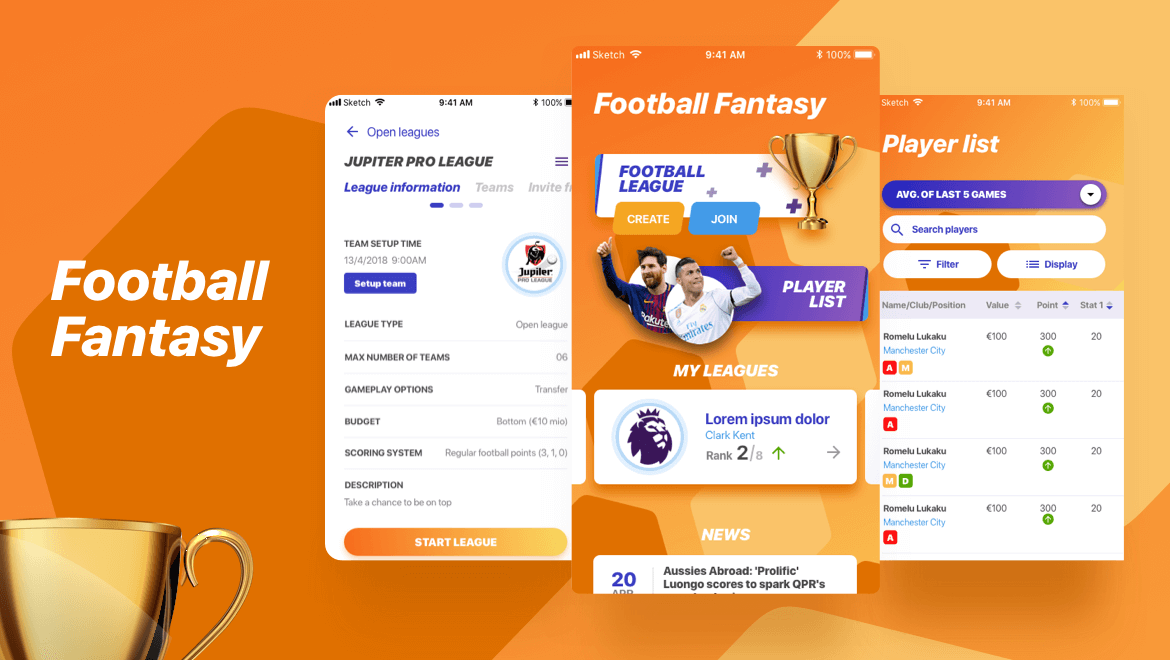Our client, a creative software developer based in Belgium, sought to create an online community football game centered around the Belgian Jupiler Pro League. The game would allow users to create their own leagues, teams, and players based on real-life data from the league, fostering engagement among football fans through an interactive platform.
Main features
- Create Leagues and Teams: Users can create their own leagues and teams, customizing them with real-life players and team structures.
- Invite Friends to a League: The game allows users to invite friends to join their custom leagues, enhancing the community aspect of the platform.
- View Player List and Details: Users can browse through a list of real-life players, view detailed statistics, and make informed decisions when assembling their teams.
- Player Selection with Budget Constraints: Users select players based on a virtual budget, adding a strategic layer to team building.
- View Real League Schedules and Results: Users can view the schedule and results of the actual Belgian Jupiler Pro League, keeping the game closely tied to real-world events.
- Team Rankings: The platform includes ranking features to track the performance of teams within user-created leagues.




